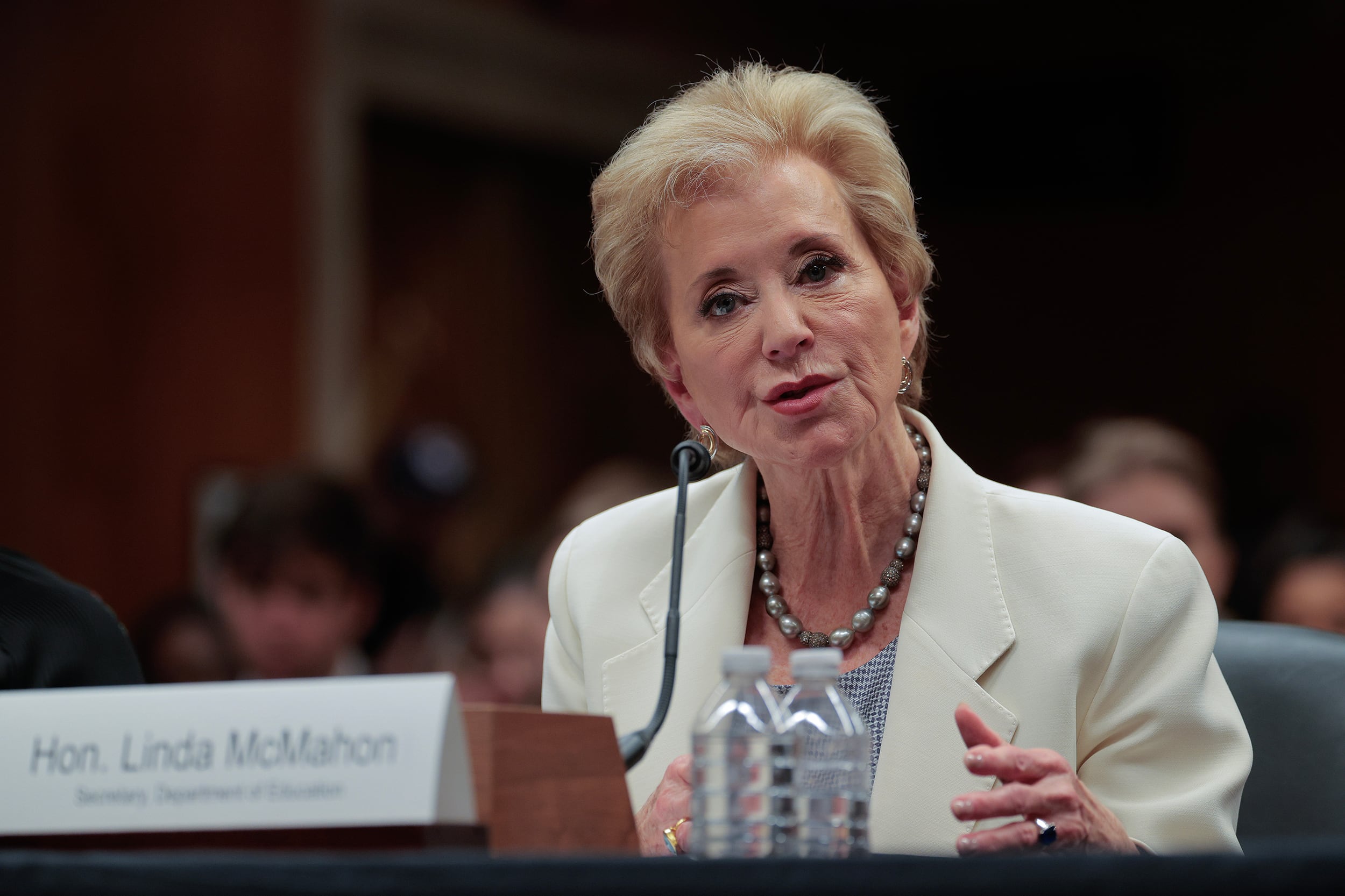Sign up for Chalkbeat Indiana’s free daily newsletter to keep up with Indianapolis Public Schools, Marion County’s township districts, and statewide education news.
Hundreds of millions of dollars in federal education funding Indiana receives for teaching and learning could be rolled into block grants and distributed to schools to spend with minimal requirements, under a plan presented by officials Wednesday.
The state plans to submit a waiver request to the U.S. Department of Education in the coming months seeking to consolidate the money it receives under the Every Student Succeeds Act, commonly known as Title funding. This money supports specific programs related to professional development, after-school care, English learner education, and more.
Under the state’s request, the specific federal program requirements associated with each grant would be eliminated, both for the state and local school districts. That essentially means schools would be able to use any funding they receive to support any of the Title programs, rather than following current requirements for specific Title funds to serve specific students and purposes.
Title I-A funding, which supports students from low-income backgrounds and is the single largest source of federal K-12 funding, would not be consolidated into the funds given to districts, according to the state, which did not explain why.
If approved by federal officials, the plan would go into effect for the 2026-27 school year.
A common concern about consolidating federal funding in this way has been that it would direct money away from groups of students who need extra support.
But Ron Sandlin, chief innovation officer at the Indiana Department of Education, said Indiana’s goal is to reduce reporting requirements associated with different streams of funding, as well as eliminate the workarounds that some districts have relied on in order to fund programs and teachers, like combining small grants to fund a large project.
“It’s calculated the same, but once it gets to you, you can use it for any activity approved by ESEA,” Sandlin said, referring to the main federal K-12 law. “No longer will you receive Title III money that can only be used on specific activities. You’ll receive Title III money, and then it can be used on any activities.”
The state would create reporting requirements for after the money is spent, Sandlin said, to monitor how much each school spends on serving the populations previously required by the Title funding.
Another part of the state’s waiver request includes combining competitive grants and school improvement funds into an “Innovation Fund” that could be used to support more schools than are currently eligible.
Sandlin suggested eliminating requirements for these funds could benefit more types of schools in Indiana’s school choice landscape.
“Indiana has a robust ecosystem of public education. The federal government has not caught up to us. They continue to force us to funnel things through the traditional geographically located school corporations. … We know we have a very dynamic educational environment that serves students across school types,” Sandlin said.
Another part of Indiana’s waiver request would have the state’s forthcoming A-F grading system pull double duty and serve as its federal accountability system too. The Elementary and Secondary Education Act includes accountability requirements, although the current iteration of the federal law adopted in 2015, the Every Student Succeeds Act, is less strict than its predecessor.
Consolidating education funding has been a popular conservative idea under the second Trump administration. Earlier this year, Indiana Secretary of Education Katie Jenner and Gov. Mike Braun expressed support for the idea of giving states more control over education and related funding.
Indiana’s plan comes just days after the Supreme Court ruled the president could proceed with mass layoffs at the U.S. Department of Education that are part of President Donald Trump’s plan to ultimately dismantle the department.
The plan also follows months of funding whiplash as the Trump administration has threatened to withhold Title dollars from states that teach diversity, equity, and inclusion ideas deemed illegal under its interpretation of civil rights laws. Indiana planned to certify that it did not have any such programs or teachings.
Earlier this month, federal funds supporting after-school programs, migrant education, English learners, adult education, and professional development were frozen as the Trump administration completed a review of the grants.
Indiana’s plan is similar to plans submitted by Iowa and Oklahoma to the federal education department earlier this year. The Iowa Department of Education told Chalkbeat that their plan is still under review.
“Because this is a first-in-the-nation proposal from March 2025, [the U.S. Department of Education] continues to help Iowa identify and pursue potential paths forward to achieve Iowa’s novel requests through a combination of waivers, modernized administrative interpretations, and cost allocation options,” the Iowa department said in a statement.
Indiana officials plan to release the details of the proposal in the next week, after which they will hold a 30-day public comment period before submitting it to the U.S. Department of Education.
Aleksandra Appleton covers Indiana education policy and writes about K-12 schools across the state. Contact her at aappleton@chalkbeat.org.





